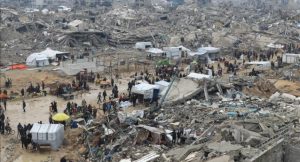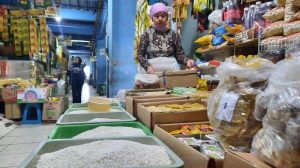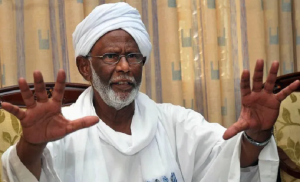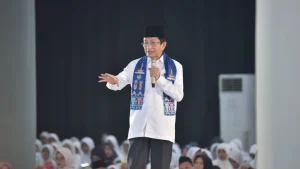 Laylatul Qadr – Night of Power in the Quran: An exposition
Laylatul Qadr – Night of Power in the Quran: An exposition
by Mawlana Muhammad Zakariyya
Amongst the nights of Ramadhaan, there is one called ‘Laylatul Qadr’,a night that is noted for its greatest blessings. The Noble Qur’an describes it as being greater in blessedness and spiritual virtue than a thousand months, which in turn means that it is more valuable than eighty three years and four months. Fortunate indeed is that person who attains the full blessings of this night by spending it in the worship of Allah, because he has then attained the reward of ‘Ibaadah’ (worship) for eighty three years,four months and even more. Indeed (the granting of) this night for the faithful Muslims is a great favour.
THE ORIGIN
Also Read: Egypt, Qatar Deliver Trump’s Gaza Ceasefire Proposal to Hamas
Regarding this night in a Hadith reported by Anas (RA) in Durre Manthur, Rasulullah (Sallallaahu Alayhi Wasallam) is reported to have said: “Laylatul Qadr was granted to this Ummah (of mine) andnot to any other ‘Ummah’ before this” As regards the reason for the granting of ‘Laylatul Qadr’, various views are held.According to some Ahaadith, one reason is given thus: Rasulullah (Sallallaahu Alayhi Wasallam) used to ponder over the longer lives of peoples of the past ages and when comparing them with, the much shorter lives of his ‘Ummah’, he became greatly saddened, because if his ‘Ummah’ wished to compete with the people before them, then because of their shorter lives, it would be impossible for them to either emulate or surpass the previous ‘Ummahs’ in the doing of righteous deeds. Therefore, Allah in His Infinite Mercy granted them this night of great blessings. This means that, if any fortunate person of this ‘Ummah’ during his life-time spends ten such nights in the worship of his Maker, he would have gained the reward of ‘Ibaadah’ (worship) for eight hundred and thirty three years and even more. Another report states that Rasulullah (Sallallaahu Alayhi Wasallam) once related to the ‘Sahaaba’ the story of a very righteous man from among the Banu Israaeel, who spent one thousand months in ‘Jihaad’. On hearing this, the Sahaaba enviously felt that they could not attain the same reward, whereupon Allah granted them this Night (of Power). Still another report states that it so happened that our Nabi (Sallallaahu Alayhi Wasallam) once mentioned the names ofthe four most pious people from among the Banu Israaeel, each of whom spent eighty years in Allah’s sincere service, worshiping Him and not transgressing in the least. They were Nabi Ayyub, Zakariyya, Ezkeel and Yu’sha (Alayhimus salaam). The ‘Sahaaba’ heard this, wondering how to emulate their achievements. Then Jibraaeel (Alayhis salaam) appeared and recited ‘Surah Qadr’, wherein the blessings of this particular night were revealed.
There are reports too, explaining the origin of the Night of Power. But no matter which of these we accept, the important fact remains that Allah has granted us this night, as a great favour, and how fortunate are those divines who have never missed worship in this night. As to which particular night it is, here again approximately fifty different views are reported. It is not easy for me to enumerate them all, but the most generally accepted versions, shall follow in the ensuing pages of this chapter. Because the Qur’an Majeed itself mentions the night, we shall commence with a short commentary of Surah Qadr.
‘We have indeed revealed this (message) in the Night of Power.’
Reference here is made to the fact that,on this specific night, the Qur’an was sent down from the ‘Lawhul Mahfoodh’ (the preserved Tablet) to the heavens (above the earth). The mere fact that the Qur’an was revealed on this night would have been sufficient to ensure its greatness. But apart from this fact, it is also noted for many other things. In the very next verse, by way of increasing out interest in the matter under discussion, a question is asked:
Also Read: Israeli Airstrikes Kill 54 Palestinians Across Gaza
‘And what will explain to you what the Night of Power is?’
In other words, the question asked here is: Have you any knowledge as to the greatness and importance of this night? Have you any knowledge as to the great favours and bounties that go with it? The next verse proceeds to explain its greatness.
‘The night of Power is better that a thousand months’
The true meaning here is that the reward forspending this night in worship (Ibaadah) is betterand more than that for having spent one thousand months in worship (Ibaadah); but as to how much more rewarding it is,we are not told here.
Also Read: School Bus Explosion in Pakistan Kills Five, Military Accuses India
 ‘Therein come down the Angels and the Spirit, by Allah’s permission on every errand’
‘Therein come down the Angels and the Spirit, by Allah’s permission on every errand’
A fine explanation is given for this verse by Imaam Raazi. Commenting on this verse, he explains that when man first appeared on earth, the ‘Malaaikah’looked upon him with concern. They even ventured to ask Allah, ‘Will You place on this earth, one who shall be riotous therein and shed blood?’
Similarly, when his parents noted his original formasa mere drop of sperm, they too looked upon it with dislike, so much so, that they considered it as something which polluted the clothes and had to be washed away. But later, when Allah made that same sperm into a fine form of a child, they began to love and cherish him. So far have things now progressed that, when on this Night of Power we find that same man worshipping Allah and adoring Him, then those very Angels (Malaaikah) descend towards him, obviously repentant for the thoughts they had once harboured against him. In this verse, where in is mentioned (Wa-rrooh) ‘and the Spirit…’, the reference is to Jibraaeel (Alayhis salaam) who descends to the Earth during this night. Commentators of the Qur’an have given various meanings of this word. Let us look at some of them:
The vast majority of commentators are agreed that Jibraaeel (Alayhis salaam) is meant here and, according to Imaam Razi, this is the most correct meaning. Allah first makes mention of the ‘Malaaikah’ and then, because of Jibraaeel (Alayhis salaam)’s special status among them, a separate mention is made of him.
Also Read: Half a Million People in Gaza on the Risk of Starvation: IPC
Some commentators hold the view that ‘Spirit’ here means one specific Angel of such extra-ordinary and gigantic proportions that before him the Heavens and the Earth appear as small as a morsel.
Another group of commentators opine that ‘Spirit’ here means one group of ‘Malaaikah’ who never ordinarily appear and only on this night are they seen by other ‘Malaaikah’
Some commentators believe that ‘Spirit’ here designates one specific creation of Allah, who partake of food and drink, and yet neither men nor angels.
There is also a view that ‘Spirit’ here refers to the Prophet Jesus (Alayhis salaam), who onthis night comes down to look at the righteous deeds of the ‘Ummah’
Also Read: Israeli Captive Says “Only a Deal Will Bring Us Home”
The last interpretation we wish to mention here is that ‘Spirit’ means Allah’s special ‘Mercy’ which comes in the wake of the angels descent.
There are other interpretations also, but as already stated, the first opinion given above is the best known. In this connection, Imaam Bayhaqi (RA) relates a Hadith by Anas wherein Rasulullah (Sallallaahu Alayhi Wasallam) is reported to have said: ‘On ‘Laylatul Qadr’ Jibraaeel (Alayhis salaam) comes down with a group of angels and prays for mercy for every one whom they find busy in worship (Ibaadah).’
‘By Allah’s permission, descend on the Earth for blessed errands…’
The author of Mazaaire Haqq writes that on this night, ages ago, the ‘Malaaikah’ were created, long before the creation of Aadam (Alayhis salaam) was begun in the shape of a nucleous; on this same night Paradise was planted with tree and numerous Ahaadith bear witness to the fact that on this night prayers are accepted. Similarly, we read in the book, Durre Manthoor, that according to a Hadith it was on this night that the Prophet Jesus (Alayhis salaam) was lifted up bodily into the Heavens, and also it was on this night that the repentence (Tawbah) of Banu Israaeel was accepted.
Also Read: Al-Quds Brigades Seize Israeli Surveillance Drone Over Khan Younis
‘Peace reigns until the break of dawn’
Indeed this night is the very embodiment of peace; the ‘Malaaikah’ offer salutations to the faithful believers adoring their Lord. As one group ascends, another group descends (with the same greetings), as indicated in some narrations. Another interpretation is that it is that it is a night of complete safety from evil and mischief. These blessings last all night until the break of dawn, and are not limited to anyone part of the night.
Laylatul Qadr: the night of power!
 Meanwhile Abu Muhmmad Yusuf writes in his article that Allah Ta’ala in His infinite Mercy has favoured us in so many ways. Such blessings that we cannot possibly enumerate nor show sufficient gratitude to the Almighty. Amongst the many blessings include a very special GIFT..Laylatul Qadr- The Night of Power.
Meanwhile Abu Muhmmad Yusuf writes in his article that Allah Ta’ala in His infinite Mercy has favoured us in so many ways. Such blessings that we cannot possibly enumerate nor show sufficient gratitude to the Almighty. Amongst the many blessings include a very special GIFT..Laylatul Qadr- The Night of Power.
Also Read: Hamas Expresses Readiness for Comprehensive Deal with Israel for Hostage Release
It is an opportunity to gain closeness to our Creator, forgiveness of our sins and an elevated position in Jannah (Paradise). The Night of Power is better that a 1000 months(83 years, 4 months)!
Allah, Most Wise, says:
“The Night of Power is better than a thousand months.” (Quran 97:3 )
The Messenger of Allah (Peace be upon him) is reported to have said:
Also Read: Israel Reaffirms Total Blockade on Humanitarian Aid to Gaza Amid Global Outcry
“Whosoever stands in “Ibaadah” (worship) on this night, with sincere faith and with genuine hopes of gaining reward, his previous sins will be forgiven.” (Hadith-Bukhari and Muslim)
When is it?
The Messenger of Allah (peace be upon him) is reported to have said:
“Seek it (laylatul qadr) in Ramadan in the last ten nights. For verily, it is during the odd nights, 21st 23rd, 25th, 27th, 29th or the last night of Ramadhan.” (Sahih Hadith Ahmad 5:318)
Also Read: Israeli Captive in Gaza Sends Emotional Plea to Netanyahu for His Release
From traditions we learn that among the signs of this night is that it is a serene, quiet, shining night, neither hot, nor cold but temperate as if a moon is shining clear, and no meteors are shot at the “Shayateen” on that night; it lasts until the break of the dawn. Another sign is that at morn, the Sun rises without any radiant beams of light, appearing rather like the moon in it’s fullness. On that day, Allah prohibits the “Shayateen” from rising up with the Sun.
What to do on this night?
Worship during this night can take on many forms. Here are a few suggestions to help you through Laylatul Qadr:
· Take a vacation for Allah! If possible, take a vacation for the last 10 days of Ramadan.Plan ahead if you are working.
Also Read: Extremist Settlers Storm Al-Aqsa Mosque Under Heavy Israeli Police Protection
· Discuss the importance of this night with your friends and family and Islamic Scholars(Ulama). Create an atmosphere for ibadah(worship).
· Perform Itikaaf (seclusion in a Masjid for worship) –Try to spend full ten days in I’tikaf. If you cannot spend all 10 days in Itikaaf, then do as many days as you can – even if it is only one day. According to the Messenger of Allah (Sallallaho alaihe wasallam) “whosoever performs “I’tikaaf” for a day thereby seeking the pleasure of Allah, Allah will spread three trenches between him and the fire of Hell, the width of each trench being greater than the distance between Heaven and the Earth.”
· Increase the recitation of the Qur’an- Try to recite as much Qur’an as possible. There is great virtue in recitation. (reflect on the meaning of the verses, especially the verses used in Salah. This will help you concentrate)
· Increase Salah (prayer).Read as many Nawaafil (optional)Prayers as possible. Eg Tahajjud Salaah, Salatul Tasbih etc
· Make abundant Zikr (i.e remembering Allah, sending salawaat on our beloved Rasulullah(salallaho alaihe wassallam) and making Istigfaar(seeking forgiveness from Allah)
· Dua (Asking from Allah)- Spend lots of time begging from Allah to fulfil your needs and the needs of the Ummah both in this world and the hereafter. Ramadaan is replete with moments when duas are accepted. Aaisha (Radhiallaho anha) reports: “I said: ‘O Messenger of Allah (Sallallaho alaihe wasallam), should I find myself the “Laylatul Qadr”, what shall I pray. The Prophet (Sallallaho alaihe wasallam) replied: say,
Allaahumma innaka afuwwun tohibbul’afwa fa’fu anna
“O Allah, Thou art the One who grants pardon for sins. Thou lovest to pardon, so pardon me.” (Hadith-Recorded by Ahmad, Ibn Majah, and at-Tirmithi)
For the dua in Arabic script please see: http://eislaminfo.blogspot.com/2011/08/dua-laylatul-qadr_4495.html
· Make list of Things you need from Allah-Ask yourself what you really want from Allah. Make a list of each and everything, no matter how small or how big it is, whether it deals with this world or the hereafter. Allah loves to hear from us and wants us to beg of Him. Once this list is ready then use it in your prayers.
· Best time for dua- Make sincere and all-embracing Duas. One of the best times to do this is during the last part of the night especially at the time of suhoor (sehri). Abu Huraira, may Allah be pleased with him, related that Rasulullah (salallaho alaihe wassallam) said: When the last one-third of the night remains, our Lord, the Glorious One descends towards the heaven of the earth and proclaims: Who is that who supplicates for Me, and I grant his supplication? Who is that who begs Me for anything and I grant it to him? And who is that who seeks My forgiveness, and I forgive him? (Hadith-Bukhari, Muslim).
· Take regular breaks during the night to avoid getting over-exhausted. Try switching between different forms of worship.
May Allah accept our prayers and allow us to take full benefit of this Mubarak Night and let us not forget our brothers and sisters all over the world who are being oppressed and facing extreme hardships. (T/Muslimvilage.com/E1)
Mi’raj News Agency (MINA)
Sources:
1.Jamiatul Ulama
2.http://eislam.co.za




























 Mina Indonesia
Mina Indonesia Mina Arabic
Mina Arabic